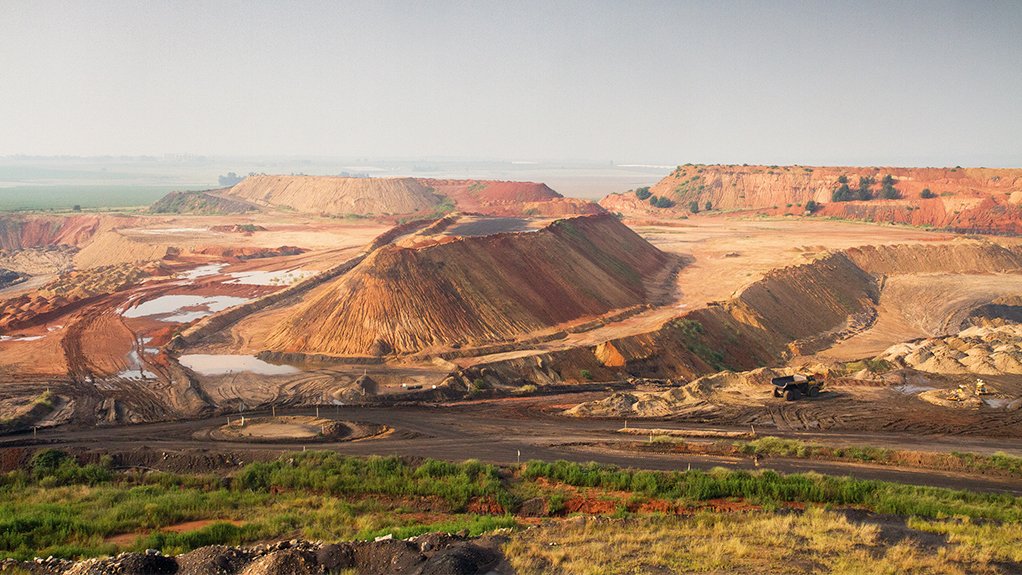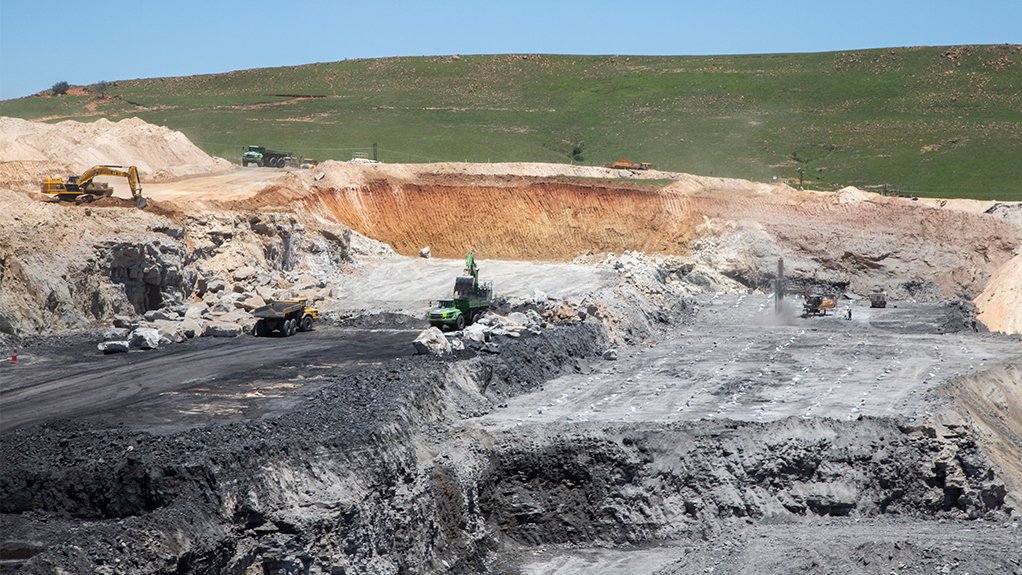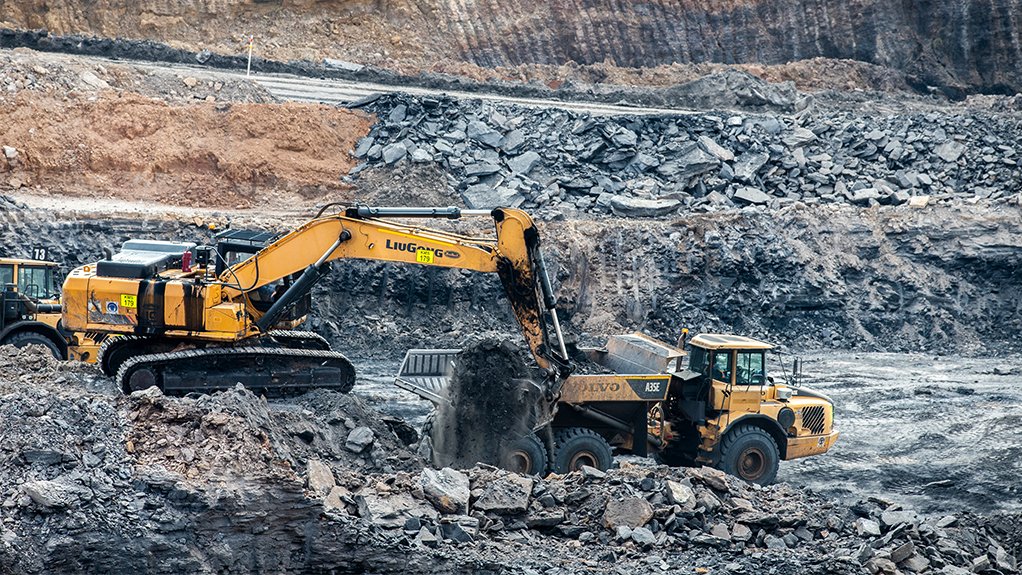Mining investment firm Menar recently procured a collision avoidance system (CAS), which has been installed in all the company’s opencast mobile equipment, notes Menar chairperson Mpumelelo Mkhabela.
“After rigorous testing, the system was first installed on our earthmoving equipment at the Khanye Colliery, in Delmas, Mpumalanga. Thereafter it was implemented at our other sites. This system has also been installed in our earthmoving machines for our East Manganese project, in Hotazel, in the Northern Cape.
The CAS – developed by software technology company Minetec Smart Mining –prevents accidents by providing machine operators with early audio and visual warnings when in close proximity to another machine or structure, he says.
Key features of the system include the ability to detect objects and issue warnings to machine operators while sending notifications to field managers and control centres, notifying them of existing problems. The system also provides substantial enhancement of driver awareness levels through its predictive detection system.
The installation follows a two-year process of seeking a reliable, cost-effective and compatible CAS that meets Menar’s strict safety requirements, says Mkhabela.
“At our underground sites, the mining equipment has been operating with pedestrian detection systems technology for much longer, as the risk for collisions in those environments is much greater,” he highlights.
The diligence with which performance and efficiencies are monitored, measured and improved are key to maintaining a low-cost operation; therefore, Menar measures performance and efficiencies on an ongoing basis – from a group level, where operations are measured against one another, to the individual machines at every site.
“We are developing a system whereby our CAS will enable us to automatically measure diesel consumption and running hours at all our opencast machines. This will greatly enhance our ability to measure and control performance and efficiencies,” he tells Mining Weekly.
Investments
Menar has not abandoned any of its planned R7-billion new project investment commitments made at the beginning of 2020.
To this end, the company has made some progress and looks forward to fully executing its investment plans.
Mkhabela points out, firstly, that all approvals for the De Wittekrans coal project, near Hendrina, in Mpumalanga, have been obtained. The project will be an opencast and underground operation, with the feasibility study and geotechnical report also completed.
“Secondly, we have begun breaking ground to start operations at our East Manganese project. Thirdly, we have received all approvals to begin operations at Twyfelhoek – which is part of thermal coal miner Kangra Coal – in Piet Retief, Mpumalanga.”
Further, Menar is considering other diversification avenues while developing its coal and anthracite projects. Mkhabela highlights that the company’s East Manganese project is its first venture into manganese.
Beyond South Africa, Menar’s exploration for gold in Kyrgyzstan looks promising and the company is also considering the development of its nickel/cobalt asset, in Turkey.
However, Mkhabela highlights that it is not easy to secure finance to develop new coal mining projects because of the environmental concerns associated with coal – especially because there is insufficient discussion in South Africa about clean coal technologies.
“Our strategy has been to reinvest proceeds into the business while minimising a reliance on financial institutions. In our experience, once you minimise reliance on financial institutions for the initial capital injection, you create room to help your contractors access the capital they need.”
He adds that, in all projects, regardless of the type of mineral, it is critical to develop sound relationships with equipment suppliers, as this helps to minimise project finance challenges.
Regulatory Environment
While the Department of Minerals Resources and Energy has been doing its best to fast-track approvals, the Department of Environment, Forestry and Fisheries has not always appreciated the urgency required to get as much investment as possible to fast-track the country’s economic recovery and create jobs, Mkhabela notes.
Although the Department of Human Settlements, Water and Sanitation can improve, he commends its Minister, Lindiwe Sisulu, who has initiated a process to oversee the speedy processing of applications for water-use licences.
If the process is successful, her commitment could serve as a major boost to investor confidence, he adds.
“We are pleased that one of the key outcomes of the process to craft an economic recovery plan at the National Economic Development and Labour Council
– a process led by President Cyril Ramaphosa – is that private-sector investments will be enabled by fast-tracking the issuing of environmental authorisations and water use licences.
“The mining-sector stands to benefit immensely if the message filters through across all ministries, departments and other State institutions. It seems as if there is a realisation that the key to the country’s economic recovery potential is in the hands of the State.”
Menar has a dedicated project development team and regulatory compliance team who work “very hard to assist regulatory authorities with all the required compliance processes, studies and reports”, Mkhabela concludes.
Edited by: Nadine James
Features Deputy Editor
EMAIL THIS ARTICLE SAVE THIS ARTICLE
ARTICLE ENQUIRY
To subscribe email subscriptions@creamermedia.co.za or click here
To advertise email advertising@creamermedia.co.za or click here

















